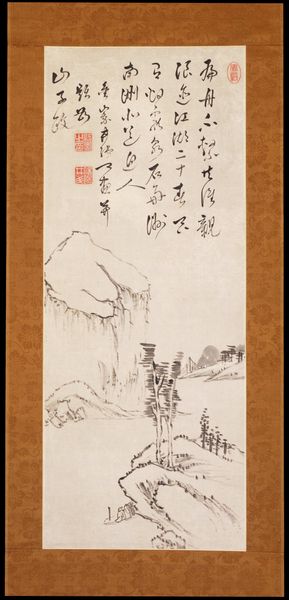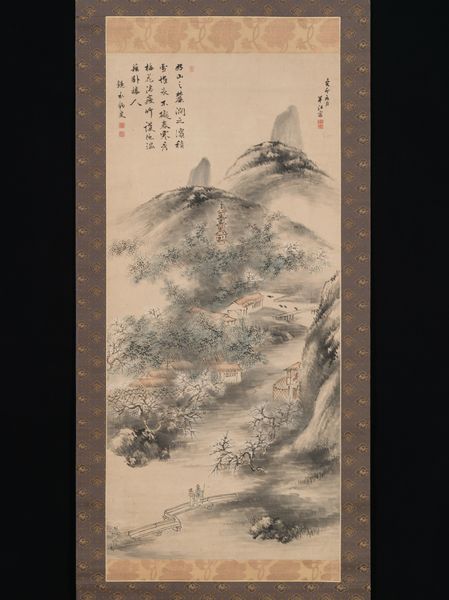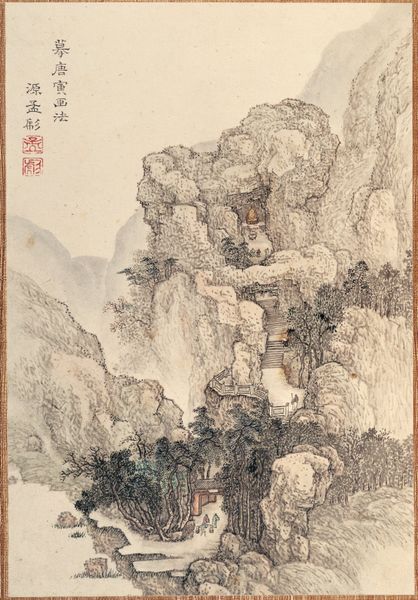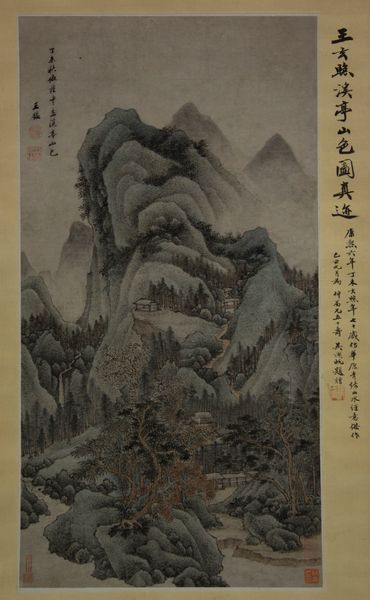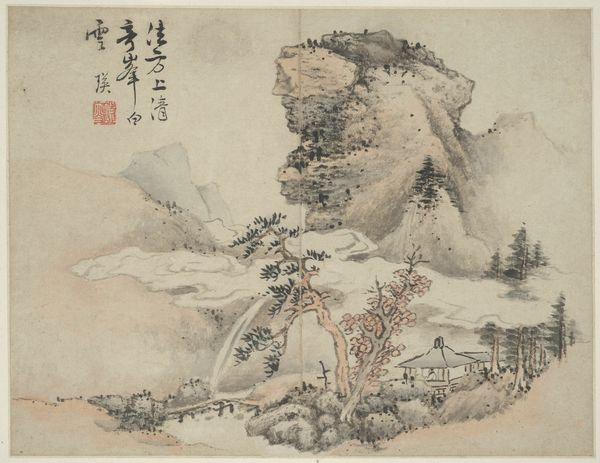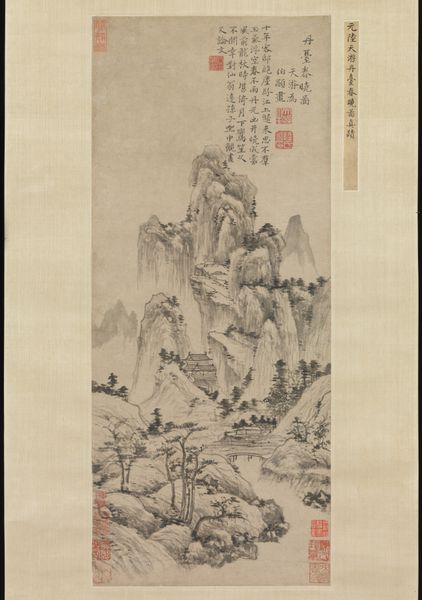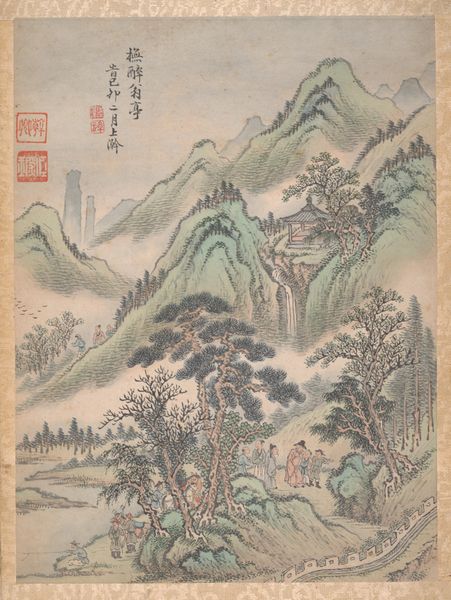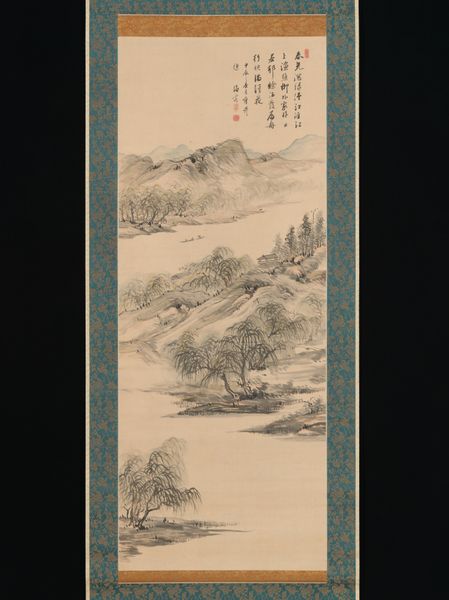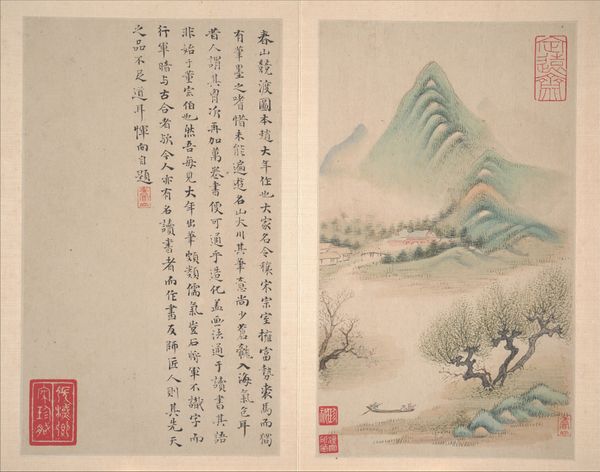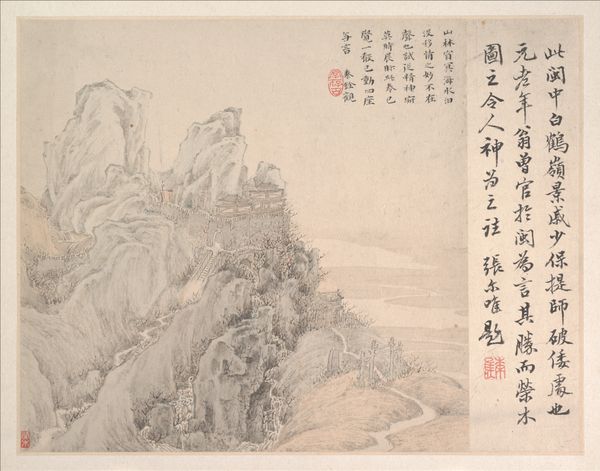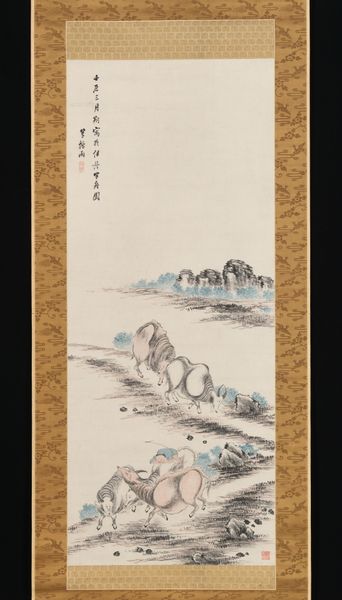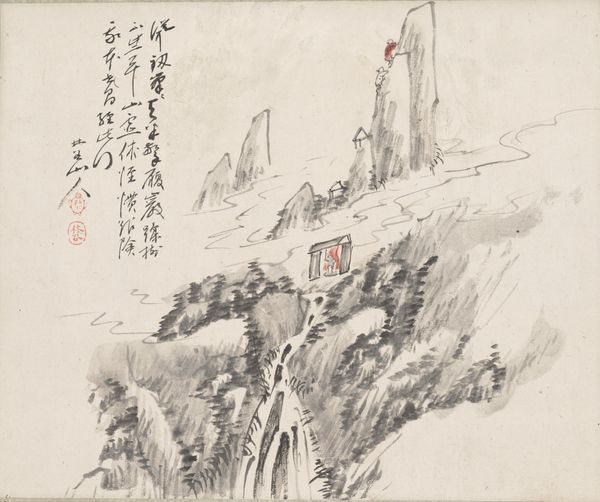
drawing, ink
#
drawing
#
asian-art
#
landscape
#
ink
#
line
#
watercolor
Dimensions: Image: 11 1/4 × 6 11/16 in. (28.5 × 17 cm) Overall with mounting: 45 11/16 × 9 5/8 in. (116 × 24.4 cm) Overall with knobs: 45 11/16 × 11 9/16 in. (116 × 29.4 cm)
Copyright: Public Domain
Uragami Shunkin created this ink-on-paper landscape painting in Japan, during the late Edo period. It depicts a winter scene with trees, mountains, and a small village nestled at their base. The monochrome palette and soft brushstrokes evoke a sense of tranquility and detachment from the everyday world. Shunkin was a member of the Bunjinga school of painting, which emphasized personal expression and intellectual pursuits over strict adherence to artistic conventions. The Bunjinga artists saw themselves as scholar-amateurs, following Chinese ideals of the literati, and often critiqued the rigid social hierarchy of the Edo period, where artistic patronage was often controlled by the Shogunate. By depicting an idealized natural landscape, Shunkin subtly challenged the authority of the ruling elite and offered an alternative vision of harmony and freedom. To truly understand this, one must delve into the Edo period and study the writings of Bunjinga artists. In doing so, we can start to appreciate the ways in which art can reflect and shape the social and political landscape.
Comments
No comments
Be the first to comment and join the conversation on the ultimate creative platform.
